Review for The Taste Of Tea
Introduction
One thing I like about Third Window Films is the way that they champion certain directors, often going as far as curating their filmography in the West, and fans can look forward to new releases from them receiving the Third Window treatment. They can be mainstream or popular filmmakers like Shinya Tsukamoto, Takeshi Kitano, Sion Sono, or comparatively niche directors like Satoshi Miki, Shuichi Okita, Yoshihiro Nakamura and Eiji Uchida. In recent months, there has been an increasing clamour from fans requesting the films of Katsuhito Ishii on social media, although much of it has been since Third Window Films announced his The Taste of Tea. Could Third Window have discovered a new director to champion?
The Taste of Tea follows the lives of the Haruno family, living in a rural idyll, although they aren’t exactly a typical family. The father Nobuo is a hypnotherapist who works in the city, while the mother, Yoshiko draws anime at home. The son, Hajime has his heart broken when his unrequited love moves away, but that heartbreak lasts only as long as it takes for a new girl named Aoi to transfer into his class at school. Their uncle Ayano has just come home to take a break from his job as a music producer, while grandpa marches to the beat of a different drum, or rather the tone of a different tuning fork. As for little Sachiko, she’s worried that wherever she goes, a giant version of herself follows.
The Disc
The Taste of Tea gets a 1.66:1 pillarboxed 1080p transfer on this disc, with DTS-HD MA 5.1 Surround Japanese and optional translated English subtitles. The Taste of Tea dates from 2004 and you can see some signs of that age in the transfer. The image is clear and sharp and free of print damage, detail levels are good, while colours are rich and vivid, while remaining decidedly filmic. The film has a naturalistic look to it that reflects the light comedy drama genre and the rural feel. Where the age of the film is apparent is in the contrast, where the blacks tend to grey, and darker scenes aren’t quite as clear. The audio is really quite impressive, as The Taste of Tea has a very subtle but effective sound design. The film is truly immersive, reflecting the setting of the story, and enhancing the surreal nature. The music too is just as subtle and carefully used; although this is the oddest use of Good King Wenceslas I’ve ever heard. The subtitles are accurately timed and free of typos, but note that the end theme song lacks a lyric translation.
Extras
The disc boots to an animated menu, and given the age of the film, the extra features come with a disclaimer regarding their quality.
The trailer lasts 2:12.
The Super Big Full Animated Short lasts 2:49 and is the ‘completed’ animation that you get a preview of in the film.
But the real gold in the extras is the Making of the Taste of Tea. This is a feature length extra that runs to 91:18, taking us behind the scenes of the making of the film, and with plenty of interviews with the cast and crew.
Conclusion
The Taste of Tea is deceptively frivolous. It plays like a series of surreal comedy sketches, with little vignettes of absurdity surrounding the members of the Haruno family. It actually took me a little while before I realised that The Taste of Tea is a live action version of one of my favourite anime genres, the slice of life. If you take the bizarre comedy of Nichijou, and give it the pace, and the rural setting of Non Non Biyori, you get The Taste Of Tea, and it is just as charming, heart-warming, and as funny as those two anime shows.
It is set in a rather bizarre village, in that it’s almost a city in microcosm. The Haruno family are a cosmopolitan bunch to say the least, and so are the villagers. It has two cosplayers, and there are even three yakuza driving around in a car throwing their weight around somewhat ineptly. We first encounter the son, Hajime as he’s running after the train that is carrying his crush away from him. The next thing we see is his forehead start to bulge (like Naota in FLCL), only it’s a train that comes flying out of his forehead, leaving a train shaped hole in his life. That sets the tone for the rest of the film, although if you’re uncertain as to just how surreal things will get, it isn’t long before we meet uncle Ayano, and hear his childhood tale of being caught short in the forest while collecting eggs from wild chickens, and subsequently being haunted by the ghost of a yakuza. The tale inspires Sachiko to do something about the giant version of herself that follows her.
It’s hard to review this film as it doesn’t have a narrative in the conventional sense. It would wind up as a list of all the delightful moments in the film, of which there are plenty. The strongest character arc may be that of Hajime, and his love life, but even that develops in a series of moments rather than something linear. There is also the constant, incongruous presence of the grandfather, a Bohemian character ever present in the film, who we first see sneaking glances of Sachiko through a window when she isn’t looking, distracting her from the giant head of herself poking up in the garden. But his frequent appearances and daft antics (including the most bizarre song you’ll most likely hear) lead to the one real narrative focal point in the film, an arc that draws this strange family together.
I wouldn’t say that The Taste of Tea is laugh out loud funny, but it is quirky and incessantly charming. These delightful characters have these very personal and unique adventures, related in this series of enchanting vignettes, and I found that I was drawn into these lives despite myself, making the end of the film really quite affecting and memorable. Beautifully shot, wonderfully realised, and wholly unique, this Blu-ray release from Third Window Films is another disc that you simply must have on your shelf.
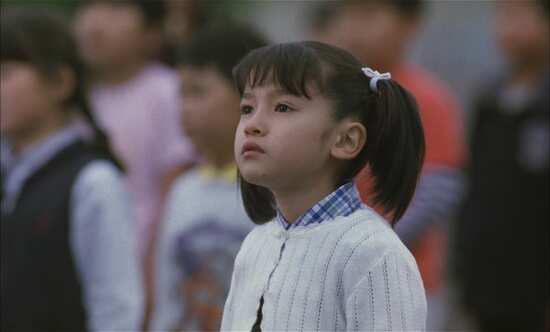
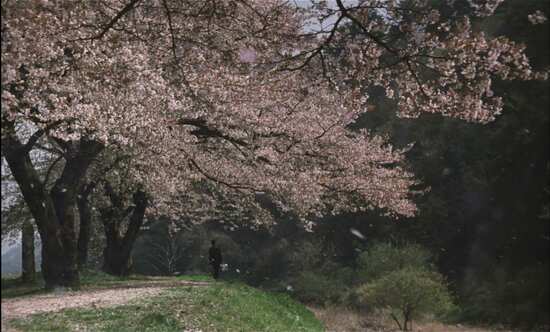
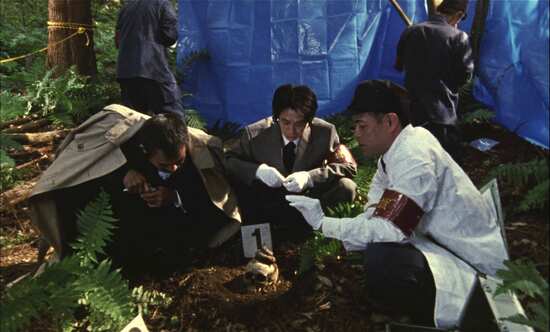
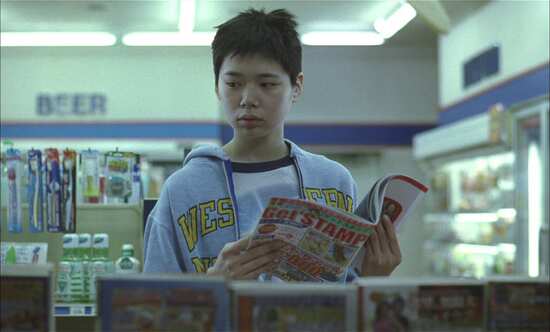
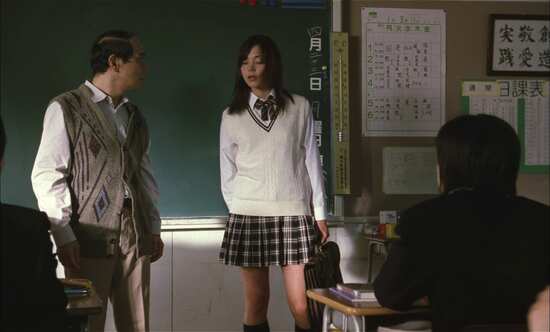
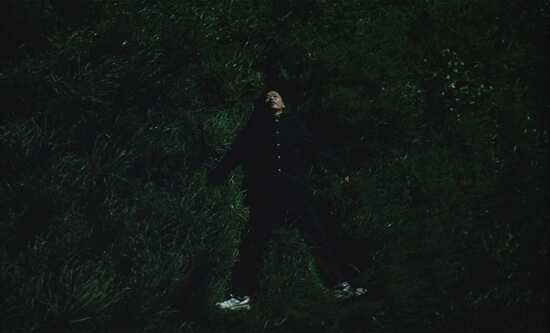
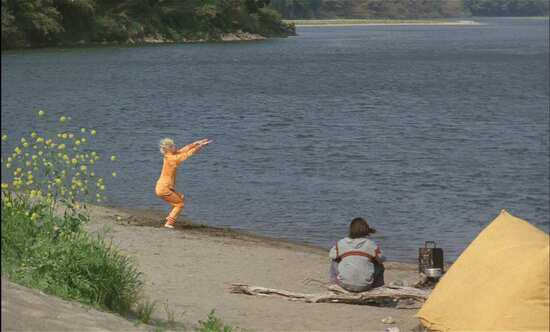
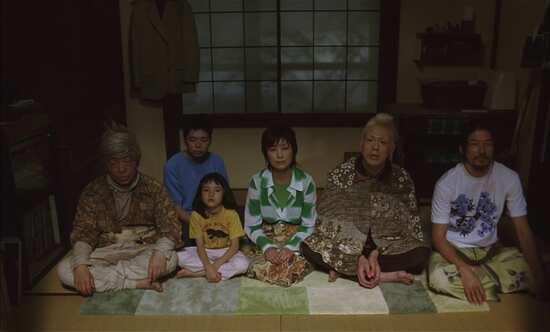
Your Opinions and Comments
Be the first to post a comment!